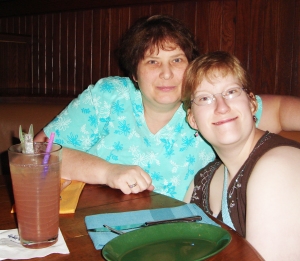As Communication Specialist for the Health & Disability Working Group, I work with Meg Comeau, director of the Catalyst Center. When Meg came home from her meeting at the White House last week, I was struck by the stories she told of the other families at the meeting. For someone like me, who has had no experience with Medicaid, it can be difficult to understand just how crucial Medicaid is to these families, and how financially draining it can be to raise a child with special health care needs. I decided to interview the families about the meeting, as a personal project outside of my official role with the Catalyst Center. I put together an audio slideshow of what they told me, so others can hear their experiences firsthand. I have posted the results on Youtube; you can view it by clicking on the image above.
One of the people I spoke with was Laura Rodgers, an 11-year-old girl who attended the White House meeting. Laura told White House officals what it’s like for her and her brother to live with with mitochondrial disorder and why Medicaid is important to her and Matthew. But attending a White House meeting is not Laura’s only accomplishment: as a second grader, Laura set herself the goal of reading all the Newbury medal winners before she got to middle school (5th grade). She did it, too, with months to spare, and you can see what she thought of these books on her blog, Laura’s Life. What does that have to do with Medicaid? Listen to Laura talking about the White House meeting to find out.
More information about the meeting is also available on our White House Meeting page.
Edi Ablavsky

